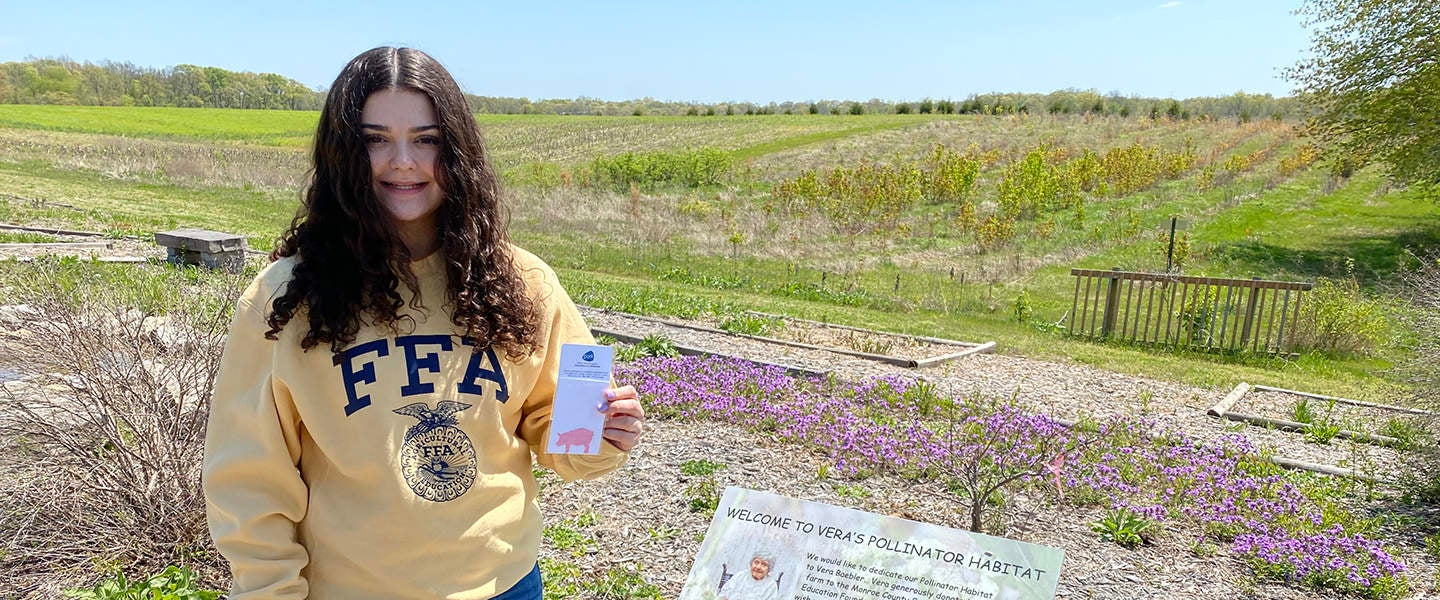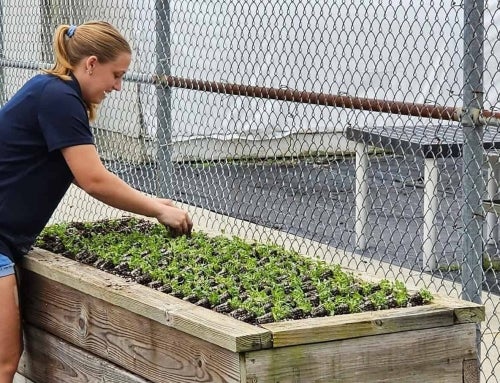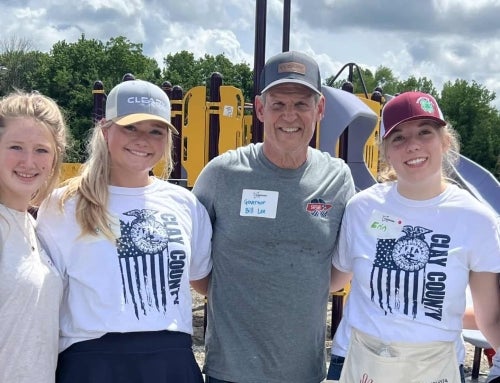When Elaan Bader of Litchfield FFA in Litchfield, Ill., began her supervised agricultural experience (SAE) as a high school freshman in 2018, she had no idea the impact it would have on both her community and her state.
Bader’s SAE, which focused on educating the public about insect pollinator habitat and safety, started as a 4-H project. She grew the project upon joining FFA.
“Insect pollinators pollinate two-thirds of the fruits and vegetables in grocery stores,” says Bader, a senior at Litchfield High School. “While there are other forms of pollination, bees and monarch butterflies pollinate 84% of the foods that require it. These insects are an essential part of our food security equation, so it’s important that we protect them — and it starts with education.”
Bader, the official Illinois butterfly monitor for the Shoal Creek watershed and a citizen scientist for I-Pollinate and BeeSpotter through the University of Illinois at Urbana-Champaign, has educated adults and children across Illinois and six other states, plus internationally in Brazil and Jordan via Zoom and other online forums. Her educational approach differs based on her audience, but Bader always includes a hands-on element for all ages to enjoy.
“Everyone I teach has the opportunity to create interactive bee robots made from toothbrush heads and small, battery-operated motors,” Bader says. “Not only is this fun, but it also helps students to visualize the process of bees collecting pollen. I share fun facts and read children a pollinator storybook, while adults get more in-depth information. Everyone gets a packet of native pollinator wildflower seed mix to plant. My hope is that everyone leaves with a better understanding of and greater appreciation for insect pollinators.”
Bader won the 2021 Illinois FFA proficiency in agricultural education based on her efforts to educate others about her SAE and is currently working with the Illinois Department of Transportation on a statewide initiative called the Illinois Monarch Project.
Bader plants and maintains native milkweed and wildflower plots — valuable nectar and pollen sources — along Litchfield’s Historic Old Route 66, which is part of the Route 66 Monarch Flyway.
“These pollinator plots will self-bloom after three years, and we should see an increase in insect pollinators — that’s the goal,” says Bader. “I’m honored to be part of this project; I’m serving my community as well as contributing to a cause I’m passionate about.”
You never know where your SAE will lead you too! Learn more about SAEs at SAEforall.org/; for more on degrees and awards, visit FFA.org/awards/.












